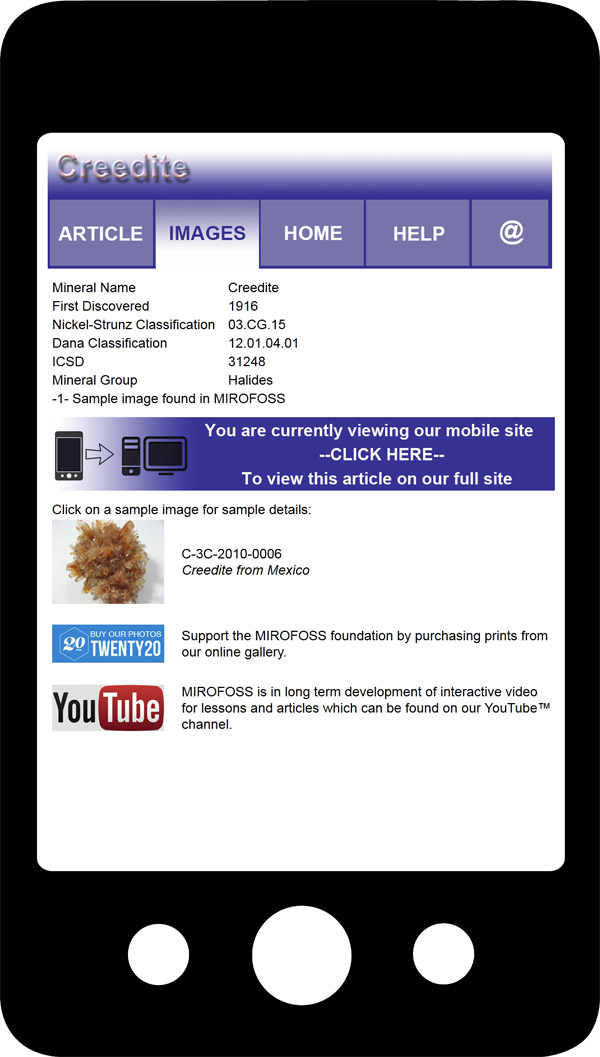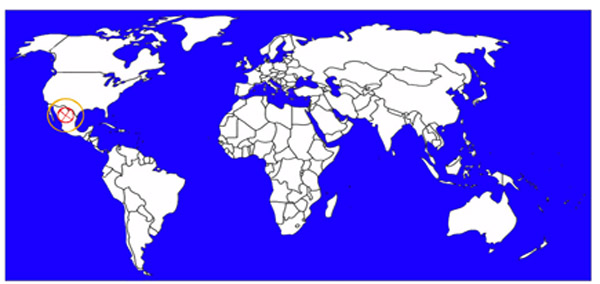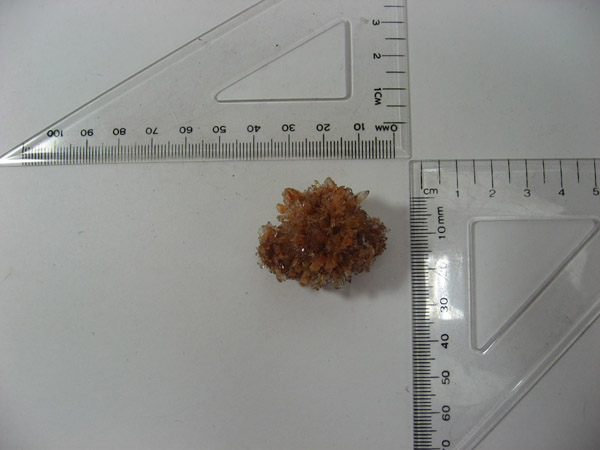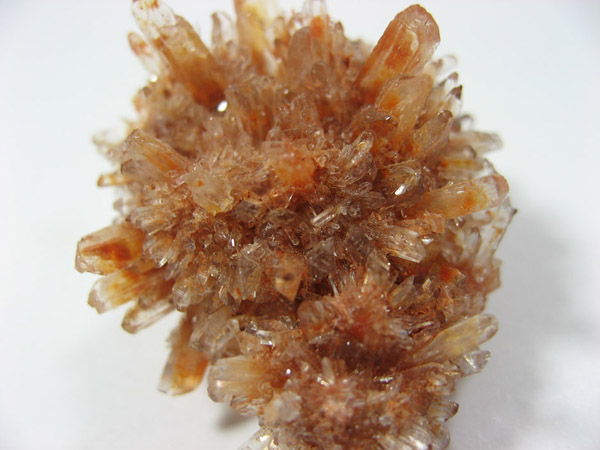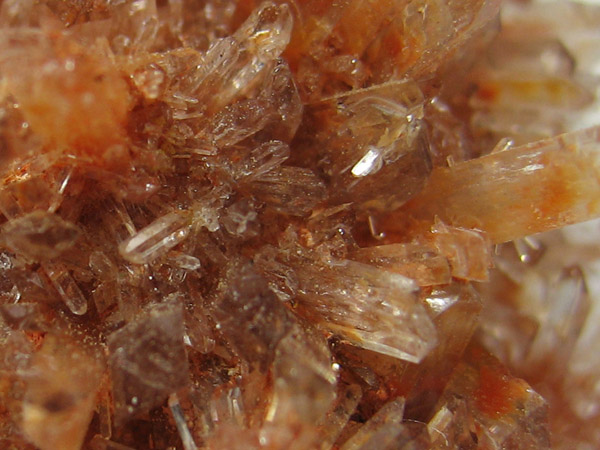+ Each sample found in MIROFOSS is given a unique collection number which can be seen underneath the mineral sample along with the country of origin for the sample.
The unique collection number is refereed to as the 'Dynamo Collection Number' and is created using information from the Nickel-Strunz classification system as well as date information of when the mineral was acquired. Using the mineral sample shown to the left, we can further explain the Dynamo Collection Number:
C - The mineral name is 'creedite' therefore, the first character is 'C'
3 - The mineral is a halide so it is given the character '3'
C - The character 'C' after the character '3' shows the mineral is a complex halide
2010 - the year in which the mineral was acquired
0006 - shows it was the sixth mineral starting with the letter 'C' to be acquired in the shown year |


